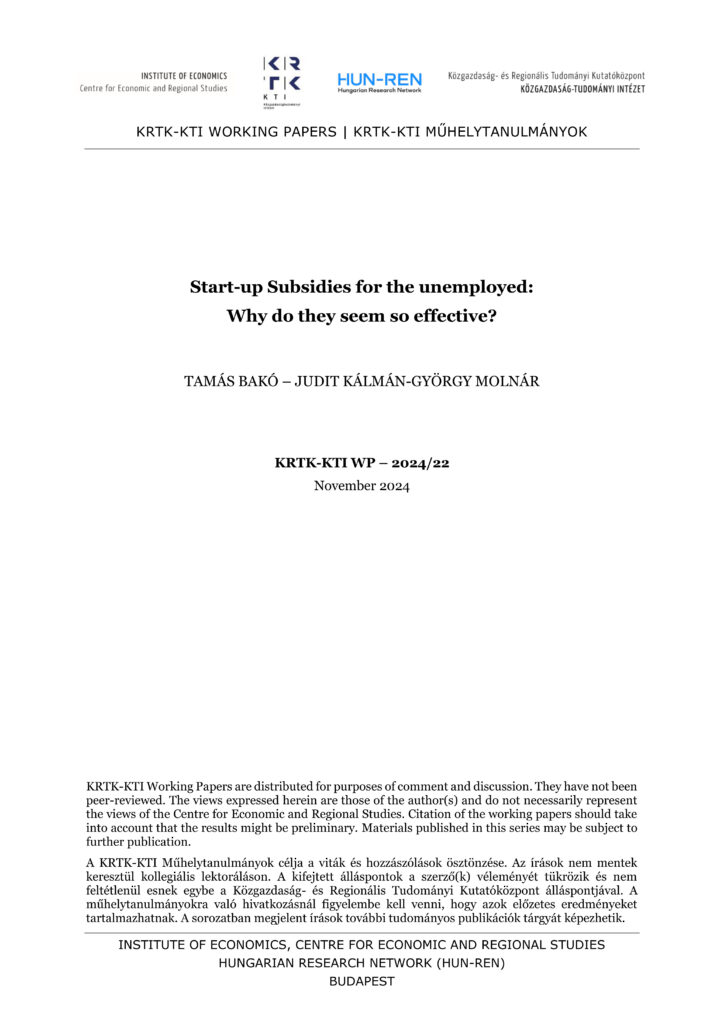By using Hungarian administrative data we evaluate the impact of a start-up subsidy programme on the labour market integration of the unemployed. When – following the generally accepted method – the control group included everyone who could have participated in the programme but did not, the effect of the support was positive and consistent with previous research. However, in contrast to numerous other active labour market programmes, a distinctive aspect of start-up support schemes is that the unemployed person leaves unemployment status immediately upon entry. Therefore, we also created a second control group, where only those members of the first control group were included, who exited unemployment at the same time as the treatment group. Although statistically significant positive effects were also found in the second control group, the effect size was only one-third to one-quarter of that in the first control group. Additionally, this second model is highly susceptible to unobserved heterogeneity. Thus, it seems that the strong positive effect is mainly due to the fact that a significant proportion of the members of the first control group perform worse than the members of the second control group in terms of the unobserved characteristic that is important for the labour market. Our results show that the support mostly helps groups with less favorable labor market prospects, so tightening the eligibility criteria could improve the efficiency of the programme.
Publikációk / Start-up Subsidies for the unemployed: Why do they seem so effective?
2025
Sep
03
M
T
W
T
F
S
S
1
2
3
4
5
6
7
8
9
10
11
12
13
14
15
16
17
18
19
20
21
22
23
24
25
26
27
28
29
30
1
2
3
4
5
Next month >
a
2025
Sep
03
M
T
W
T
F
S
S
1
2
3
4
5
6
7
8
9
10
11
12
13
14
15
16
17
18
19
20
21
22
23
24
25
26
27
28
29
30
1
2
3
4
5
Next month >


